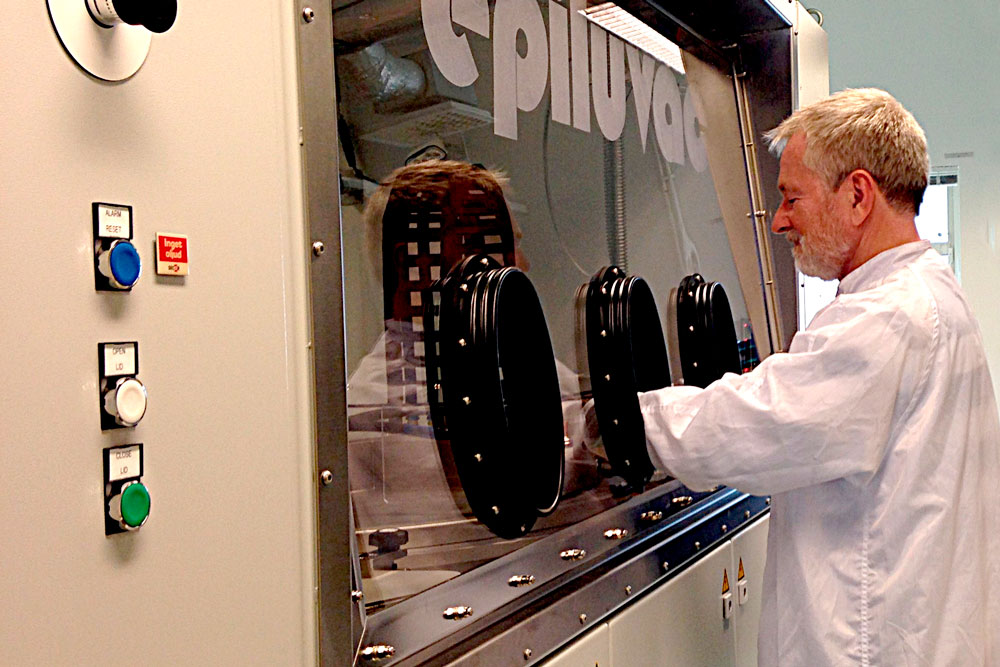
New members are looking forward to May trip
In May, it’s finally time for a new delegation to travel to India – the first since the autumn of 2019. Participants arrive in Delhi on May 10 and nine intense days are to follow, filled with business meetings, workshops and matchmaking.
Two new companies have joined ISIA and are making their first journey: Epiluvac and Stockholm Water Technology.
The arrival day includes a visit to the Sustainability by Sweden Showroom at the Swedish Embassy and ends with a welcome dinner. After that, there will be two days of B2B meetings in Delhi, Bangalore and Mumbai, among other places, before it is time for the first of two workshops. The workshops are arranged by ISIA’s Indian partner CII and also include rapid matchmaking where Swedish entrepreneurs and innovators meet stakeholders in various segments of the Indian market. The first workshop will be held in Delhi and the second in Hyderabad on May 18, the last day of the trip, when there will also be a guided tour of CII’s Green Building Centre.
SWT: Cleaning water with electricity
Someone who is looking forward to the journey with ISIA is Karthik Laxman, founder and CEO of Stockholm Water Technology, SWT. The company works with an innovative technology for water purification, which is based on electricity mediated removal of a large array of water borne contaminants. The technology is already in operation in homes in Sweden, fish farms in Denmark and Norway and at a brewery in Netherlands, cleaning water to drinking standards in all the applications.
“Being born and raised in India, I know the challenges associated with drinking water and the need for smart, energy and water efficient and sustainable water purification solutions, both for the industry and the consumer,” says Karthik Laxman.
Single step removal
SWT’s patented electro-capacitive technology works on low DC voltage (<2 VDC), chemical free operation, where the electric field is used to attract out the contaminants via the nanostructured electrode materials within the device. Hence the cleaned water passes through and the contaminants collected are disposed of in a concentrated wastewater stream. The technology, which is operated and monitored by an intelligent software package, purifying the water from, among other things, salts, bacteria, nutrients, heavy metals, PFAS, radon, etc, while also simultaneously regulating the hardness and pH of the water.
“One of the unique advantages with SWT products is that all the contaminants are removed simultaneously in a single step, hence effectively replacing multiple contaminants specific filters, like UV, hardness or metal ions. Our technology is also membrane free, which reduces the energy consumption by about half, has lower operating costs and a higher water recovery ratio,” says Karthik Laxman.
Connect with decision makers
He has already identified potential partners in India and hopes to be able to take decisive steps forward with the help of the ISIA program.
“It is difficult to find the most important people and decision-makers on your own. Here I have high hopes for the meetings that are arranged during the trip in India,” he says.
SWT is ready to set up a pilot in India, for example in the form of water kiosks. But they are not only interested in selling their technology and products.
“I know how important it is to be able to put ‘Made in India’ on products on the Indian market, so we are also looking for partners who can start local production of our systems,” says Karthik Laxman.
Epiluvac: Innovative semiconductor technology
Epiluvac, also a new member of ISIA, supplies chemical equipment, so called CVD reactors, in which semiconductor materials such as silicon carbide and gallium nitride are manufactured.
“India is investing heavily in developing semiconductor technology. I already have some contacts of my own in the country and hope that we, with the help of ISIA and their Indian partners, can attract interest for our technology, which today does not exist in India. I need help finding the right people, for example from the industry, but also people who can make decisions about government support to start production,” says Bo Hammarlund, CEO and co-founder of Epiluvac.
100 times faster charging
Silicon carbide is used in the automotive industry.
“India has a huge vehicle fleet that will be electrified step by step in the future, so there are great opportunities with a smart and efficient technology like ours,” says Hammarlund.
Gallium nitride is a material used for semiconductors for vehicle charging stations and in small transformers for charging telephones and other handheld devices.
“With gallium nitride, these chargers are extremely fast. You can expect the next generation to be up to 100 times faster than today,” says Bo Hammarlund.
“I hope that our participation in the ISIA program will lead to joint ventures on an industrial level with Indian partners and also to scientific development work, where we can link PhD students and civil engineers to us,” he says.